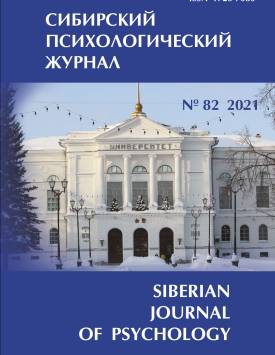The primitive and superman in L.S. Vygotsky's cultural psychology
The Western Vygotskian studies of recent years have criticized the Vygotsky's theory of the historical development of a human mind from the “primitive” through the “cultural man” to the “superman.” Some researchers discover colonialistic arrogance and even racism in the “primitive” concept, and they also attribute the “superman” concept to the influence of Nietzsche and Marxist revolutionary utopias (such as Kautsky, Trotsky). At the same time, they don't take into account Vygotsky's criticism of the modern “cultural man”. The article reveals the actual content of these concepts in the theory of Vygotsky, through a polemic with Megan Bang (Professor of Educational Psychology at Washington University, Senior Vice President of the Spencer Foundation). The historical framework for the existence of a primitive man is defined as following: from the start of labouring life to the invention of “signification.” At that moment, when people started to regulate communicative processes by means of signs, primitive mind became cultured. Signification forms the primary basis of higher psychological functions, all without exception. For Vygotsky, the “primitive” is not an ideological brand, but the starting point of human cultural development. Each of us entered the life as a primitive. Due to the division of labour into physical and mental and the progressive specialization of labour activities, “the individual has been turned into a fraction” (Vygotsky). The growth of cultural power of humanity comes at the expense of an individual's degradation. The modern cultural type is subject to a profound remelting, including its psychological structures. But it would be remelting not into a new, modernized kind of the primitive, but into a higher kind of cultured man - into a “superhuman.” The era of supermen will come as a result of the “polytechnical changes of labour”, i.e. transformation of labour into an applied science. According to Vygotsky, the psychology of the future will become a “theory and practice of superman.” His book Pedagogical Psychology elaborates the foundations of polytechnic education “for tomorrow,” which aims to form a free, universally developed personality that creates the conditions of its own life and regulates its psychological functions. The superhuman is the free human, homo liber. According to Vygotsky, human freedom consists in the self-active, cultural transformation of our own mode of life. By transforming the external world, labour thereby transforms its subject - the structure of human body, our way of life and social relationships.
Keywords
signification, polytechnism, concept, affect, freedom, height psychology, Megan BangAuthors
| Name | Organization | |
| Maidansky Andrey D. | Belgorod State National Research University; Institute of Philosophy of the Russian Academy of Sciences | caute@yandex.ru |
References

The primitive and superman in L.S. Vygotsky's cultural psychology | Sibirskiy Psikhologicheskiy Zhurnal – Siberian Journal of Psychology. 2021. № 82. DOI: 10.17223/17267080/82/1
